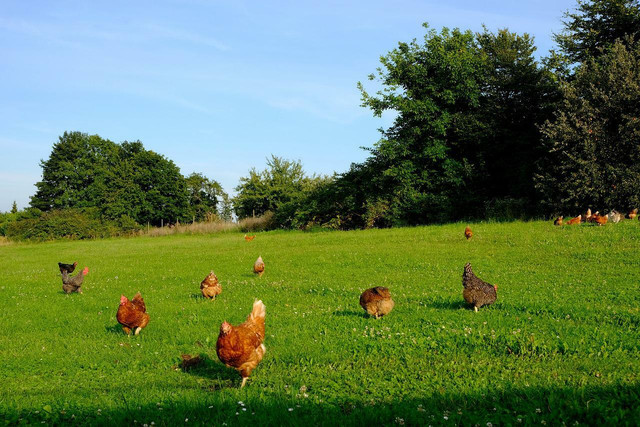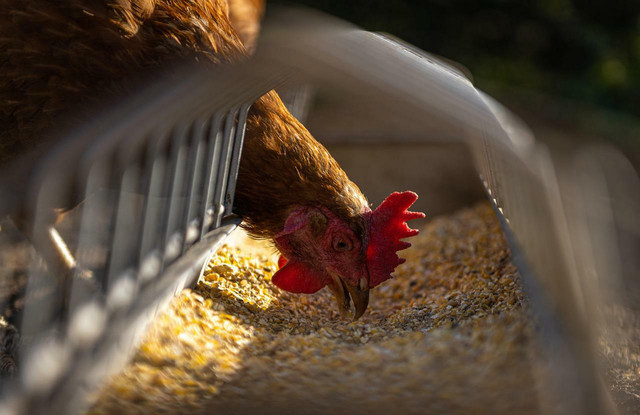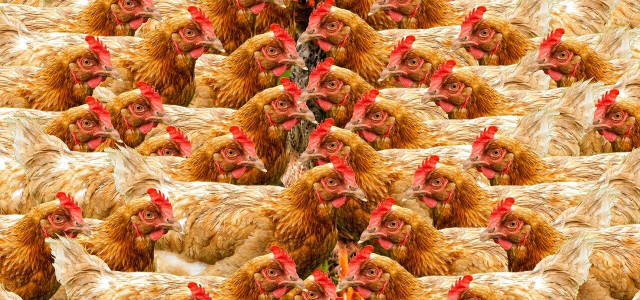Cage-free eggs don't necessarily mean that the hens have been kept in humane conditions. We'll tell you why eggs are an unsustainable food source, and why you should avoid them.
Similar to factory farming and the animal agriculture industry as a whole, the egg industry has many animal welfare and environmental consequences. Battery cages are small, drawer-shaped cages that are a few feet wide and only about 15 inches tall. This means that they are barely taller than the hens themselves. Depending on the size of the cage, between four and ten hens are held in each cage. Industry guidelines recommend that hens should have 67-86 square inches of space, which is about the size of a sheet of paper.
Caged hens also denied many of their natural behaviours such as nesting, perching, and dust-bathing. Research by scientists recognizes the concerns with animal welfare that come from battery cages. Both battery egg production and cage-free egg production typically buy their hens from hatcheries that kill the male chicks upon hatching – more than 200 million in the US alone. It is therefore important to consider the welfare of the hens before you decide to buy eggs in the grocery store.
What Are Cage-Free Eggs?

(Foto: CC0 / Pixabay / music4life)
The term “cage-free eggs” indicates that the layer hens, who produce the eggs, have not been kept in battery cages. Battery cages are the main way eggs are produced in the US, although now, 29 percent of eggs in the US now come from cage-free hens, so this is beginning to change. Cage-free eggs are therefore an improvement to the welfare of hens, as it means that they have more space to live.
However, this doesn’t mean that the hens are able to live outside. They are most likely still kept in a barn, living in high densities with other hens, which therefore does not ensure that there is a high enough level of welfare. Free-range eggs are produced from hens that have been permitted to live outdoors, although it is unknown to the consumer how much time outdoors was actually permitted. Pasture-raised eggs on the other hand means that each hen was given 108 square feet of outdoor space, as well as barn space indoors.
Cartons of eggs in the grocery store will have labels on them to indicate whether the eggs are cage-free or not. Just because an egg carton may be labelled with phrases such as ‘farm fresh’, it does not mean that the hens have had a humane life, so you should consider this before buying eggs.
Is Eating Eggs Sustainable?



(Foto: CC0 / Pixabay / AndreasGoellner)
Cage-free hens are often still forced to live in cramped, inhumane conditions, which is why the most sustainable option is to remove eggs from your diet all together. The WWF recognises that even cage-free or free-range eggs are not a sustainable food source, as research shows that high levels of toxic chemicals have been found in these eggs. Many animal welfare advocates suggest that we stop our egg consumption all together. This is because a lot of the eggs that we consume often come in other products, such as mayonnaise, salad dressings or frozen meals, where it is hard to judge where the eggs have come from and what conditions the hens were raised in.
Cutting out eggs from your diet does not mean that you have to restrict what you can eat. There are many vegan egg substitutes that you can try.
Read on:
- 4 Easy Egg Tests: How to Tell If Eggs Are Good or Bad
- The Best Homemade Vegan Cheese Substitutes
- Vegan Honey Alternatives: 4 Plant-Based Substitutes
Do you like this post?







